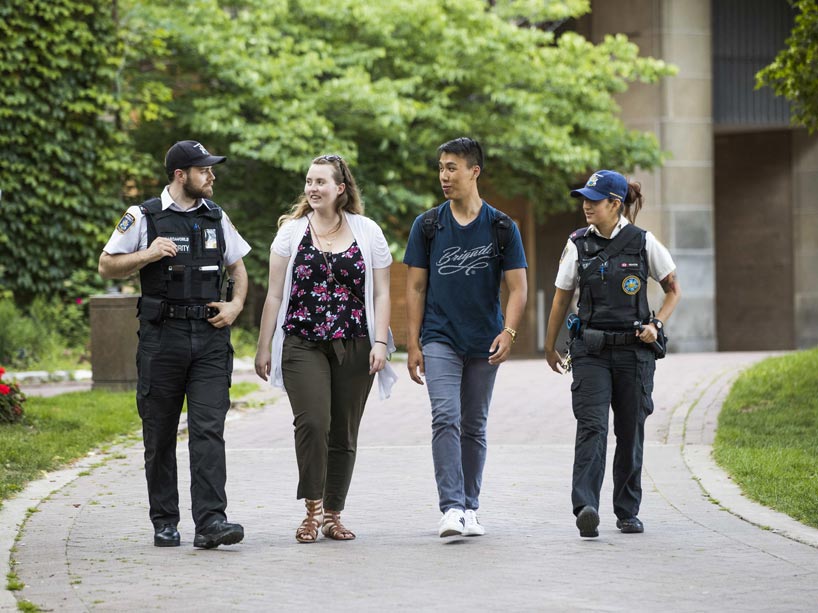New safety initiatives are a community effort

Photo: Campus safety initiatives continue to support community members.
Ryerson University is collaborating with a wide range of community partners on a series of new initiatives to strengthen and promote community safety.
Ryerson departments work with downtown stakeholders including the City of Toronto, Toronto Public Health, the Downtown Yonge Business Improvement Association, Toronto Police Service, and numerous community organizations, to enhance resiliency/safety on and around campus, and the addition of community outreach workers to support people in need.
The collaborations come in a year when numerous incidents have raised concerns about community safety in Toronto. These new initiatives and partnerships at Ryerson have been created to address concerns, while respecting the downtown community, says Denise Campbell, executive director, Community Safety and Security.
“Being at the heart of downtown Toronto with a campus that’s open to the public means that the societal issues surrounding us can impact the Ryerson community as well,” Campbell says.
“We want to make sure that our campus remains a people-friendly, and most importantly, safe environment, not just for students, but for all community members.”
Ryerson has increased the number of security crew members patrolling campus 24/7 by 25 per cent and increased lighting and security cameras in the Victoria Street parking garage. The Facilities Management and Development office has reviewed how changes to building infrastructure could further contribute to campus safety.
In addition, Community Safety and Security is developing an Emergency Management Program (including establishing an Emergency Operations Centre on campus), an education and awareness campaign on what to do in the event of an emergency and a mass notification system to keep the campus community informed about campus emergencies.
Ryerson Community Safety and Security has also hired two community engagement ambassadors who will work towards building partnerships externally and with groups within the campus community. The office will also hire two students through Career Boost this fall to work on proactive security initiatives. As a start, during this year’s Orientation, a welcome/engagement crew greeted students at entrances to campus.
Campbell also points to a new, user-friendly Community Safety and Security website that brings together all relevant information for staying safe on campus, including: how to access the WalkSafe Program; how to arrange a Personal Safety Planning Session; and information on emergency situations, theft prevention, security incidents, and training/workshops.
“We want to highlight the easy-access resources that we offer. Where do you find campus security when you need to report an incident? Who do you call if you’re working late at the library and you need a walk to the subway or your car? Where can you enrol in self-defence classes?
“We all have our role in keeping our campus safe,” says Campbell. “It’s like the phrase: ‘It takes a village.’ If you see something, say something. Don’t be afraid to speak up. We’re here to support you.”
To find out more about staying safe and the resources available, visit the new Community Safety and Security website.